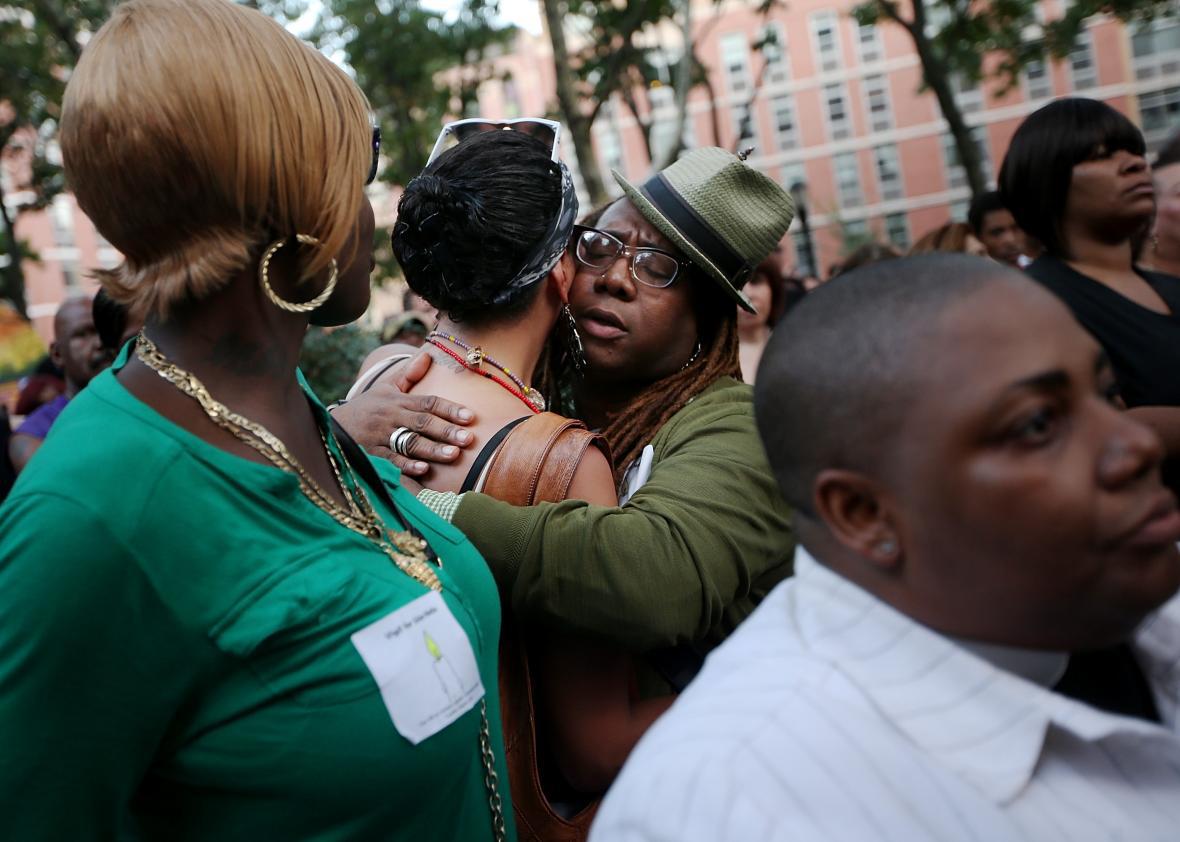The last year has seen some of the most hopeful transgender policy developments ever to come out of New York state. At the end of 2014, the state ended the practice of transgender exclusions—language barring coverage of transgender health care needs—in private health insurance. In March, the state lifted its ban on provision of transition-related care under Medicaid. And just last month, Gov. Andrew Cuomo announced that he would use the regulatory process to provide long-sought discrimination protections for transgender people.
Of course, policy advances don’t necessarily mean the situation on the ground is good. There have been transgender policy advances across the country, and yet this has been a year where more than 20 trans women were murdered across the United States. Here in the Empire State, a new report outlines a plethora of unsettling statistics about the economic conditions of transgender New Yorkers. To wit: More than half of the study’s transgender respondents—all residents of New York state—reported being food insecure.
The study, “Transgender Health and Economic Insecurity” was released Nov. 20, Transgender Day of Remembrance, by the New York State LGBT Health and Human Services Network, the New York State AIDS Institute, and Strength in Numbers Consulting Group. (Disclosure: My spouse is the president of Strength in Numbers.) It reveals that transgender respondents were “nearly twice as likely to report being food insecure as non transgender respondents.” Beyond that, the study reports that transgender respondents were “twice as likely to be unemployed … than non transgender respondents.” Even if they had been to college, transgender respondents were “140% more likely to be in poverty than non transgender respondents.”
Daniela Simba, a transgender woman who spoke at the press conference (and who is currently employed as a patient navigator), talked about looking for work: “I faced a lot of obstacles. Even when I was qualified for jobs, that was never enough.”
“After approximately two years of unemployment,” Simba said, “a friend of mine got me an interview at a workplace. She said there were six openings. … I went to the interview, everything went well.” After two weeks passed and she hadn’t heard anything, she called the friend who had got her the interview to ask what was going on. The friend said the employer wasn’t calling back because of Daniela’s “sexual orientation.” Daniela sighed, “They didn’t know the difference between sexual orientation and gender identity.” The result was clear, though: Daniela had been discriminated against for being transgender.
When it comes to job-training programs, “it was less common for transgender respondents … to successfully access these services compared to non transgender respondents,” the report found.
On the housing front, the study explains that “transgender respondents were more than twice as likely to ever have been homeless.” Transgender people are, compared to non-trans people, “more than twice as likely to rent rather than own their own homes,” implying a lack of access to wealth.
Even if the letter of insurance law has improved for trans people in New York state, respondents were “three times more likely to report inadequate insurance as a barrier to health care … and more than twice as likely to report that their personal financial resources were a barrier to accessing health care.”
The study provides recommendations to policymakers, emphasizing both the common-sense—like the need to enforce, monitor, and evaluate anti-discrimination laws—and some more next-level approaches, like “lower[ing] barriers to accessing public benefits and mak[ing] the process easier for people who are undergoing or have undergone gender transition.” As health care access is clearly still a problem, the report requests that policymakers “Assure that all transgender people, including those in the foster care system, juvenile detention or criminal justice system, have access to the health care they need.”
State Assembly Member Deborah J. Glick, who also spoke at the press conference, said, “This … is the ammunition we need to make the case in Albany that the services and the rights that are due to the trans community are vitally important.”
While Gov. Cuomo has brought transgender nondiscrimination via regulatory action, that’s still not as powerful as a nondiscrimination statute. And even beyond that, the report emphasizes one of the most brutal lessons of American liberalism: You can ban certain types of discrimination, but that doesn’t mean an oppressed population’s access to the things that make life good—say, food, income, or medical care—is actually going to improve. Nondiscrimination legislation doesn’t totally solve the problems of food insecurity or health care access, but here’s hoping “Transgender Health and Economic Insecurity” brings us toward the kind of policy changes that the transgender community dearly needs.
